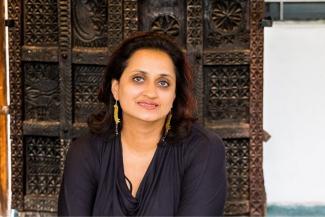
Nothing prepares you for the loss of a parent, even in adulthood. On the first anniversary of her mother's death, Shweta talks of coming to terms with the loss as she reminisces about the year gone by.
Last May, one ugly morning, we all woke up to a new reality. My ma, who had been living life full of vitality till the previous night, decided not to wake up. In just a few minutes, a seismic shift had altered our lives forever.
The first several weeks, and months, and on random days without warning, the mind would wander off – and we would start reliving her last moments with us. Never more pronounced than in the days leading to her 1st anniversary. Amma was visiting me when she passed on – visiting for a wedding in town, accompanied by my dad, my brother, and my aunts – my Chittis’ (Amma’s younger sisters) and my Periamma (Amma’s older sister). Her last few living days, her final few moments burnished in our collective memory.
This day last year. What were we doing? ‘This moment, were we not returning from picnic?’ ‘She said that, didn’t she?’ ‘We ate that yummy curd rice you had packed’ ‘Why did she agree to return early when you asked her to, instead of fighting – was she tired?’ All of us questioning ourselves silently – did we miss the signs? Could we have saved her? The questions without answers, the moments etched in stone, the sorrow, the regret, - all of it lived dozens of times through the year in all our hearts and minds, back to haunt us again today, and maybe again this day next year, and the year after…
Death is so matter of fact – everything born must die – and yet, nobody prepares you for how it shapes you when a loved one dies. This is one area we have no training in. There are classes on how to give birth, how to feed your baby, how to parent, how to deal with your child, how to manage your spouse, how to this, how to that. But nobody trains you on how to deal with life after the death of a loved one. What should you do when you see your rock, your father, break down and cry like a baby? How do you decide who gets your mother’s most prized possessions? The little décor items she picked out with so much love – invaluable to her, but worthless to someone else? Do you throw or keep her chappals she left behind in your house? Her store of sarees – who do you give them to? How do you handle your own helplessness, when you see your surviving parent wrapped in loneliness? Most of all, nobody prepares you for the seismic shift in your own mind, in your priorities, in how you suddenly view your own life and your choices. Nobody tells you that your journey from being a child to becoming the adult is now finally complete, and that, now, in many ways, your generation has reached the front of the queue.
Related: How Can You Help Someone Grieving
When blood supply to a part of our body gets blocked, a web of other smaller blood vessels emerges to take its place. That web of love is what we are slowly learning to build: new connections forged over old relationships, old connections reimagined, strengthened, to fill the giant void left by that queen-sized one.: Father to daughter, brother to sister, Aunt to niece, brother in law – sister in law. Sister to sister. Daughter-in law – father–in law, granddaughter to grandfather. All connections to help us heal, to cope, to carry on, to somehow move on.
This last year has also been a series of firsts: the first time your dad cooked you a meal for many days in a row, the first time you cooked him one many days in a row. The first time your dad fought with the maid, the first time you helped your dad manage their home. The first birthday you didn’t get a call from her first thing in the morning, the first new year you brought in without wishing her at midnight. The first year your dad celebrated his wedding anniversary alone, the first year your aunt didn’t get a saree on her special day. The first time ma didn’t make 'gajar halwa' on your brother’s birthday, the first Diwali she didn’t make your favourite ‘omapudi’ The first time you didn’t instantly know when something had happened in the extended family, the first time you attended a family function on her behalf. That first time you picked up the phone to call her, but then cut the call, that first time you cooked her signature dish without calling her first. And with each first, you learning, accepting, that this is not a just another horrible dream you will eventually wake up from.
Related: Life Lessons I Learnt Watching My Papa Die
They say 'Time heals', and heal it has, even if it should be doing a better job. In our world of instant gratification, I have learnt that there are no shortcuts to hasten the healing process. We live each day, and we cope, and with each passing day, we rebuild brick by brick, the foundations for this new phase of our life. And, yes her absence rankles still, and maybe it always will, but Time – It has now taught us that we can go on.
Shweta is a corporate professional, for whom blogging/writing is a passion. She has written for thriveglobal and is an active blogger.






